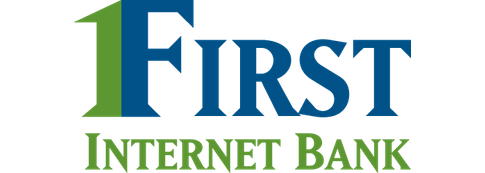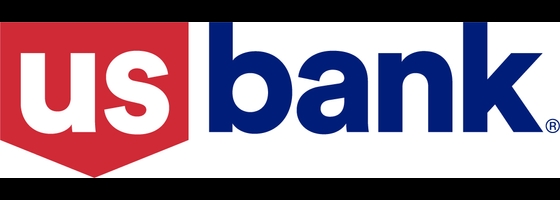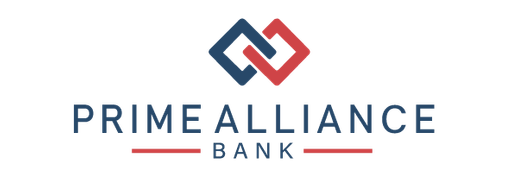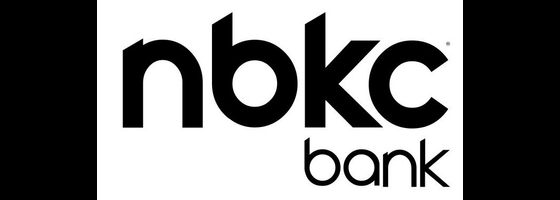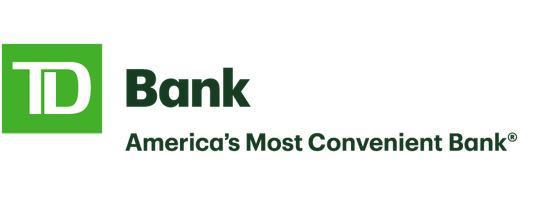- High APY.
- Low monthly fee.
Business Money Market Accounts November 2024

Our evaluations and opinions are not influenced by our advertising relationships, but we may earn a commission from our partners’ links. This content is created by TIME Stamped, under TIME’s direction and produced in accordance with TIME’s editorial guidelines and overseen by TIME’s editorial staff. Learn more about it.
If your business has additional cash on hand and you want to give it a chance to earn interest, consider a business money market account (MMA). As with a regular business checking account, a business MMA typically provides check-writing abilities and comes with a debit card to access money from an ATM. However, it should offer a higher interest rate.
The business MMA from First Internet Bank is ideal for any company with significant cash. Balances of $5 million and below earn 3.46%, and balances over $5 million earn 5.48%, significantly higher than most other banks. It has a required minimum deposit of $100, and the $5 monthly fee can be waived if you maintain a $4,000 balance.
Why we chose it: We chose First Internet Bank’s business MMA because it offers one of the highest interest rates on balances over $5 million and a low, easily waived monthly fee.
If your main objective is earning a high annual percentage yield (APY), consider the U.S. Bank Platinum MMA. You’ll earn up to 4.60% when you open your account before June 5, 2024. You need a minimum $100 deposit to open the account, but to get the best interest rates you must deposit at least $25,000. The account has a $10 monthly fee that can be waived if you maintain a balance of $10,000 or more.
Why we chose it: We chose the U.S. Bank Platinum because it offers a higher APY than many competitors.
If your business is just starting, you may need a business MMA but haven’t had the chance to build up a considerable cash reserve. The TAB Bank business MMA will allow you to still earn a respectable 4.00% APY on all balances under $1 million and an extra 0.25% on balances over $1 million. There are no monthly maintenance fees, which means you can keep more of your money.
Why we chose it: We chose the TAB Bank business MMA because it’s great for new businesses due to its generous APY on low balances.
If you’re looking for great interest rates and no fees, you’ll want to consider the Prime Alliance Bank Business Money Market Account. For all balances under $100,000, it offers an APY of 3.85%. For balances between $100,000 and $199,999.99, you’ll earn 4.05%. And for any balance over $200,000, there’s an APY of 4.25%.
Why we chose it: We selected the Prime Alliance Bank Business Money Market account because of its high APY on balances below $100,000.
With the nbkc business MMA, you earn a respectable 2.75% APY on all balances, there are no monthly maintenance and overdraft fees, and no minimum balance or opening deposit is required. You’ll also be given an nbkc business debit Mastercard with which you can withdraw cash at more than 37,000 ATMs nationwide.
Unlike many other business MMAs, the nbkc account doesn’t have any limits on the number of times you can transfer funds and make withdrawals or deposits.
Why we chose it: We chose the nbkc business MMA because it has no fees, earns an attractive APY on any balance, and doesn’t limit the number of monthly transactions.
Typically, brick-and-mortar banks offer significantly lower APYs than many online banks. However, the TD Bank Small Business Premium Money Market Account offers a tiered APY system with rates up to 2.43%. Another attractive feature of the business money market account from TD Bank is that it requires a minimum opening deposit of only $25.
This account has a $15 monthly maintenance fee, but it can be waived if you keep a minimum monthly balance of at least $2,500. Account holders will also be able to write up to six checks per month from the account.
Why we chose it: We chose the TD Bank Small Business Premium Money Market Account because of its low minimum deposit requirement and competitive APY.
With recent acquisitions, BMO has expanded its footprint across the United States. The BMO Elite Business Money Market account has become popular because of its relationship packages. While the base APY is 1.00%, you can earn more based on your total deposits with BMO. The relationship tiers are as follows:
Why we chose it: We chose the BMO Elite Business Money Market account because of the relationship bonuses it offers customers. While some banks require total deposits of more than $1 million before earning the highest rate possible, BMO is somewhat more attainable.
| Business MMA | Best for | APY* | Minimum opening deposit | Monthly fee |
|---|---|---|---|---|
First Internet Bank | High balances | Up to 5.48% | $100 | $5 (waivable with a $4,000 average daily balance) |
U.S. Bank Platinum | Overall APY | Up to 3.50% | $25,000 | $15 (waivable with a $10,000 minimum daily balance) |
TAB Bank | APY on low balances | Up to 4.25% | $25 | None |
Prime Alliance Bank Business Money Market Account | Rates under $100k | Up to 4.25% | None | None |
nbkc Bank | No fees | 2.75% | None | None |
TD Bank Small Business Premium Money Market Account | Low minimum deposit | Up to 2.32%U | $25$ | $15 (waivable with a $2,500 minimum daily balance) |
BMO Elite Business Money Market | Relationship bonuses | 1.00% (higher rates available with relationship packages) | $100 | $15 (waivable with a $5,000 minimum daily balance) |
*APYs as of May 7, 2024.
We reviewed dozens of banks and considered several factors to select the best possible business MMAs. These included APYs, minimums, transaction limits, and fees. We also dug into each account's fine print to ensure that all information was transparent to anyone considering signing up for an account.
When selecting a business MMA there are several factors to consider. These include:
An APY represents the amount of interest you’ll earn on your account balance on a monthly basis. This was the most important factor we considered.
After the APYyou should consider any account fees. Some banks charge a monthly maintenance fee that you can avoid by keeping a minimum balance, while others don’t charge any fees at all.
As many banks require a minimum deposit to open an account, be sure it’s manageable for your business. Some banks don’t have minimums, which may be more attractive to you.
Make sure the bank offers a robust digital experience. This would include an app that lets you deposit checks, transfer funds, and manage other aspects of your account from your smartphone, tablet, or computer.
Check out the bank's Better Business Bureau and Trustpilot reviews to see what other customers are saying. This should provide an indication of what your experience might be like. Of course, all reviews are subjective and opinions can vary widely.
Business MMAs aren’t the best fit for everyone. Here are a couple of alternatives you can consider.
A business checking account is comparable to a personal checking account. It’s meant for daily use, whereas an MMA is intended as a place to store extra cash. A checking account lets you make as many transactions as you like. While some business checking accounts offer interest, a business MMA typically offers a higher APY.
A business savings account is your closest alternative to an MMA. Most will offer interest but with a flat APY, unlike an MMA, which frequently has tiered interest rates based on account balance.
As of April 15, 2024, the average interest rate on an MMA was 0.66%. However, many banks on our list have rates higher than that. Banks often tier their interest rates, with higher balances earning a higher rate.
Business MMAs are very similar to business savings accounts. Their interest rates will vary, but some of the best will earn 4% or more. Some will provide a debit card and check-writing abilities, providing easy access to your money. MMAs are insured by the Federal Deposit Insurance Corporation (FDCI) up to $250,000.
MMAs let you store cash and earn interest. You can access your funds by transferring them to your checking account. Some accounts also allow you to write checks, provide you with a debit card, or both. Unlike other deposit accounts, some MMAs limit the number of transactions you can make each month.
A business MMA is best used as a way to earn a higher interest rate on excess cash. Regular savings accounts allow unlimited access to your funds but earn a lower APY. With a business MMA, you are likely limited to a set number of transactions per month. Still, it doesn’t lock up your funds entirely, as a CD does for the length of its term.
Yes, a business can invest its excess cash in money market funds. These typically will allow the business to earn a higher interest rate than a bank account, and they have short terms, usually 60 days or less. According to the U.S. Chamber of Commerce, “When companies have cash in excess of immediate needs, they invest it in money market funds…. [These funds] invest in U.S. Treasuries, municipal bonds, corporate commercial paper, and other short-term securities, which are liquid and low risk.”
Yes, it can. An LLC is a small business, and some MMAs are geared toward small businesses. Of the banks in our list, TAB Bank might be well suited to an LLC because of its high APY on low balances.
The information presented here is created by TIME Stamped and overseen by TIME editorial staff. To learn more, see our About Us page.
